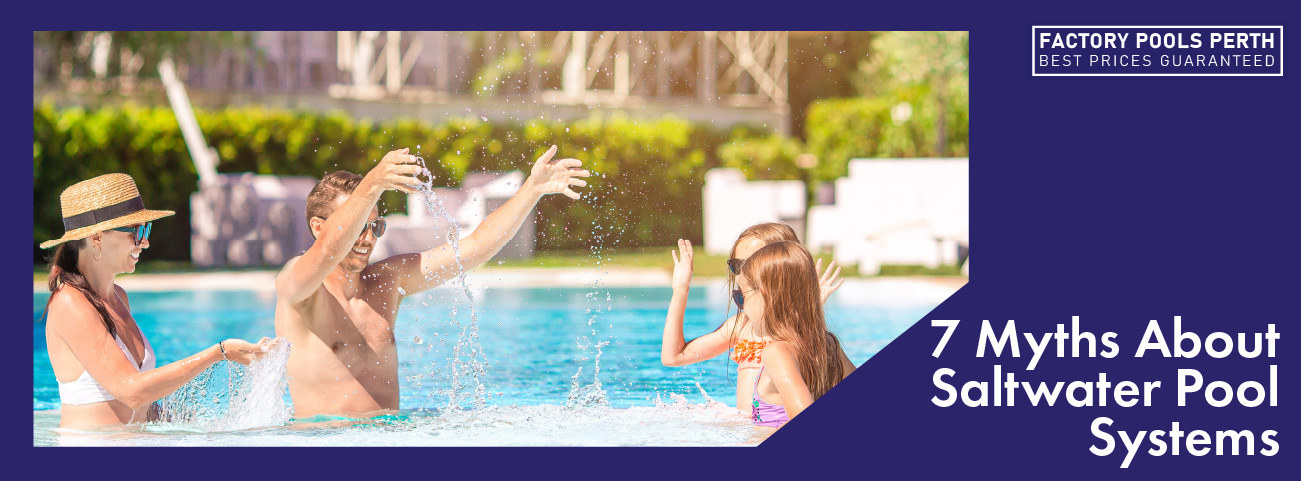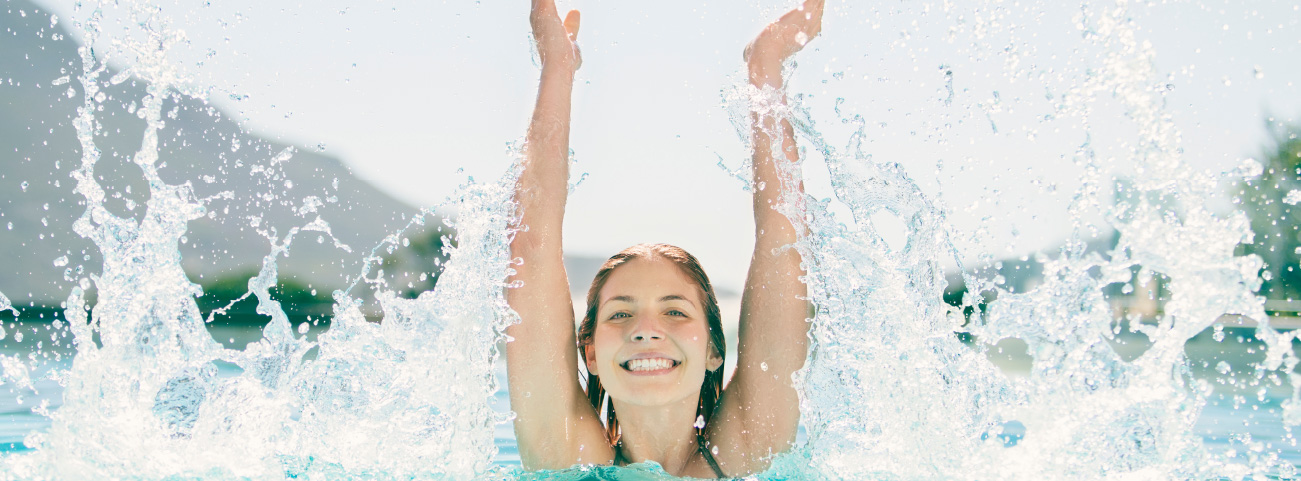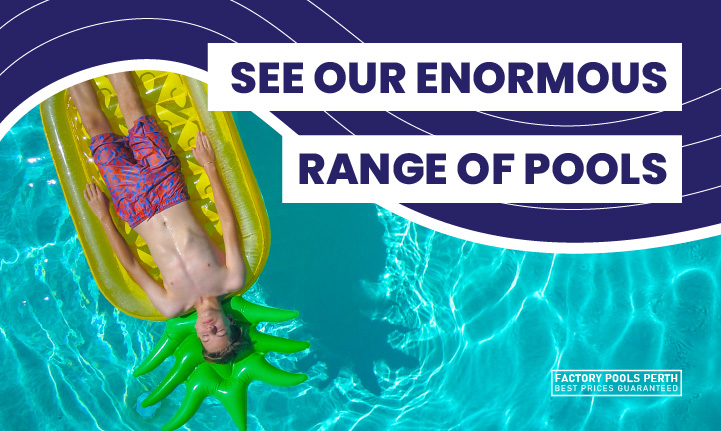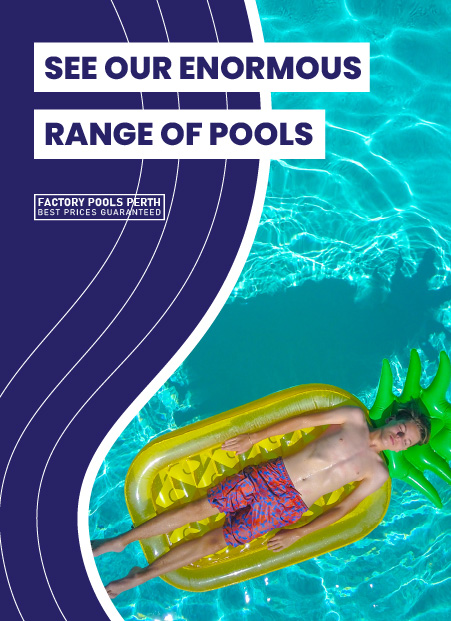7 Myths About Saltwater Pool Systems
Saltwater pools have been gaining popularity in recent years as an alternative to traditional chlorine pools. However, despite their increasing popularity, several misconceptions still surround them. In this article, we aim to debunk seven common myths about saltwater pool systems and provide a more accurate understanding of their benefits and maintenance requirements. By addressing these misconceptions, we hope to promote a clearer and more informed perspective on saltwater pools, allowing readers to make better decisions when it comes to choosing the right pool system for their needs.

Myth 1: Saltwater Pools Are Saltier Than The Ocean
Contrary to popular belief, saltwater pools are not as salty as the ocean. In fact, the salt concentration in saltwater pools is only about one-tenth of that in seawater. This lower salt concentration is achieved through the use of a specialised system that carefully regulates the amount of salt in the water. By maintaining this precise balance, saltwater pools offer a more comfortable swimming experience while still providing the benefits of a chlorinated pool. So, if you’re looking for a refreshing and gentle alternative to traditional chlorine pools, consider diving into the crystal-clear waters of a saltwater pool.
Myth 2: Saltwater Pools Are Completely Chlorine-Free
Even though saltwater pools use a salt cell to generate chlorine, it’s important to note that they are not entirely devoid of this chemical. The salt cell plays a vital role in converting salt into chlorine, which effectively disinfects the pool and ensures a safe swimming environment. By utilising this process, saltwater pools offer a unique and efficient alternative to traditional chlorine-based pools, providing an enhanced swimming experience for all.
Myth 3: Saltwater Pools Require Less Maintenance
While it is indeed true that saltwater systems automate the chlorination process, it is important to note that they still necessitate regular checks and maintenance. This is crucial in order to maintain the optimal balance of chemicals and ensure that the salt cell is performing at its best. By conducting these routine tasks, one can ensure the longevity and efficiency of the system, providing a hassle-free and enjoyable swimming experience.

Myth 4: Saltwater Pools Are Corrosive
Yes, salt can indeed be corrosive to your pool, but fret not! By diligently maintaining the optimal balance of chemicals and implementing effective protection measures, this potential issue can be easily mitigated. Regular monitoring and meticulous maintenance practices, such as regular water testing, proper filtration, and timely cleaning, will ensure that your pool remains in pristine condition, free from any corrosive damage. So, rest assured and enjoy your pool without any worries! With these proactive steps in place, you can confidently embrace the refreshing oasis of your well-maintained pool, knowing that every detail has been taken care of to preserve its longevity and beauty.
Myth 5: Saltwater Pools Are More Expensive
While the initial setup costs for a saltwater system can be higher due to the additional equipment required, the ongoing costs of maintaining a saltwater pool can actually be lower than traditional chlorine pools. This is because you don’t need to continuously purchase, store, or handle chlorine chemicals, which can add up over time. In addition to the cost savings, saltwater systems provide a more natural swimming experience. The water is gentler on the skin and eyes, making it more comfortable and enjoyable for swimmers. The saltwater also has a subtle, refreshing taste, adding to the overall experience. Furthermore, saltwater systems help to reduce the environmental impact compared to chlorine pools, as they use a natural process of converting salt into chlorine. So not only can you save money in the long run, but you can also contribute to a more sustainable and eco-friendly swimming environment.
Myth 6: Saltwater Systems Are More Complex
Saltwater systems may seem more complex initially, given their unique components, but once installed, they offer a range of benefits that make them worth considering. With their advanced technology and efficient design, saltwater systems provide a more sustainable and eco-friendly approach to pool maintenance. Additionally, they offer a gentler and more enjoyable swimming experience, as the water feels softer and less irritating to the skin and eyes. While there may be a slight learning curve in understanding the operation and maintenance of a saltwater system, the long-term advantages in terms of convenience, water quality, and cost-effectiveness are well worth it.

Myth 7: Saltwater Pools Are Bad For The Environment
In fact, saltwater pools can be regarded as more environmentally friendly compared to traditional chlorine pools. They employ a natural process known as electrolysis to generate chlorine, utilising the salt as a natural mineral source. This process not only reduces the need for chemical additives but also creates a gentler and more balanced swimming environment, which can be particularly beneficial for individuals with sensitive skin or allergies. Additionally, saltwater pools are known to have lower maintenance requirements, saving both time and money for pool owners. With their sustainable and eco-conscious design, saltwater pools are an excellent choice for those who prioritise both environmental responsibility and a delightful swimming experience.
In conclusion, it is of utmost importance to address and debunk the prevailing misconceptions surrounding saltwater pool systems. By gaining a comprehensive understanding of the factual information and dispelling the pervasive myths, individuals can make well-informed decisions regarding whether to opt for a saltwater pool. Remarkably, when properly maintained, these pools offer an array of benefits that extend far beyond merely providing a natural and comfortable swimming environment.
One significant advantage of saltwater pools is their ability to maintain lower chlorine levels, which effectively reduces the harsh chemical smell often associated with traditional pools. This characteristic not only enhances the overall swimming experience but also contributes to a healthier and more pleasant environment. Moreover, the gentle nature of saltwater pool systems makes them particularly suitable for individuals with sensitive skin or allergies, as they are less likely to cause irritation or discomfort.
By considering these aspects and embracing the advantages of a saltwater pool, individuals can confidently embark on a truly refreshing and enjoyable swimming experience. From the reduced chlorine levels to the skin-friendly properties, saltwater pools provide a remarkable solution for those seeking a more serene and rejuvenating aquatic haven.
7 Myths About Saltwater Pool Systems
Saltwater pools have been gaining popularity in recent years as an alternative to traditional chlorine pools. However, despite their increasing popularity, several misconceptions still surround them. In this article, we aim to debunk seven common myths about saltwater pool systems and provide a more accurate understanding of their benefits and maintenance requirements. By addressing these misconceptions, we hope to promote a clearer and more informed perspective on saltwater pools, allowing readers to make better decisions when it comes to choosing the right pool system for their needs.

Myth 1: Saltwater Pools Are Saltier Than The Ocean
Contrary to popular belief, saltwater pools are not as salty as the ocean. In fact, the salt concentration in saltwater pools is only about one-tenth of that in seawater. This lower salt concentration is achieved through the use of a specialised system that carefully regulates the amount of salt in the water. By maintaining this precise balance, saltwater pools offer a more comfortable swimming experience while still providing the benefits of a chlorinated pool. So, if you’re looking for a refreshing and gentle alternative to traditional chlorine pools, consider diving into the crystal-clear waters of a saltwater pool.
Myth 2: Saltwater Pools Are Completely Chlorine-Free
Even though saltwater pools use a salt cell to generate chlorine, it’s important to note that they are not entirely devoid of this chemical. The salt cell plays a vital role in converting salt into chlorine, which effectively disinfects the pool and ensures a safe swimming environment. By utilising this process, saltwater pools offer a unique and efficient alternative to traditional chlorine-based pools, providing an enhanced swimming experience for all.
Myth 3: Saltwater Pools Require Less Maintenance
While it is indeed true that saltwater systems automate the chlorination process, it is important to note that they still necessitate regular checks and maintenance. This is crucial in order to maintain the optimal balance of chemicals and ensure that the salt cell is performing at its best. By conducting these routine tasks, one can ensure the longevity and efficiency of the system, providing a hassle-free and enjoyable swimming experience.

Myth 4: Saltwater Pools Are Corrosive
Yes, salt can indeed be corrosive to your pool, but fret not! By diligently maintaining the optimal balance of chemicals and implementing effective protection measures, this potential issue can be easily mitigated. Regular monitoring and meticulous maintenance practices, such as regular water testing, proper filtration, and timely cleaning, will ensure that your pool remains in pristine condition, free from any corrosive damage. So, rest assured and enjoy your pool without any worries! With these proactive steps in place, you can confidently embrace the refreshing oasis of your well-maintained pool, knowing that every detail has been taken care of to preserve its longevity and beauty.
Myth 5: Saltwater Pools Are More Expensive
While the initial setup costs for a saltwater system can be higher due to the additional equipment required, the ongoing costs of maintaining a saltwater pool can actually be lower than traditional chlorine pools. This is because you don’t need to continuously purchase, store, or handle chlorine chemicals, which can add up over time. In addition to the cost savings, saltwater systems provide a more natural swimming experience. The water is gentler on the skin and eyes, making it more comfortable and enjoyable for swimmers. The saltwater also has a subtle, refreshing taste, adding to the overall experience. Furthermore, saltwater systems help to reduce the environmental impact compared to chlorine pools, as they use a natural process of converting salt into chlorine. So not only can you save money in the long run, but you can also contribute to a more sustainable and eco-friendly swimming environment.
Myth 6: Saltwater Systems Are More Complex
Saltwater systems may seem more complex initially, given their unique components, but once installed, they offer a range of benefits that make them worth considering. With their advanced technology and efficient design, saltwater systems provide a more sustainable and eco-friendly approach to pool maintenance. Additionally, they offer a gentler and more enjoyable swimming experience, as the water feels softer and less irritating to the skin and eyes. While there may be a slight learning curve in understanding the operation and maintenance of a saltwater system, the long-term advantages in terms of convenience, water quality, and cost-effectiveness are well worth it.

Myth 7: Saltwater Pools Are Bad For The Environment
In fact, saltwater pools can be regarded as more environmentally friendly compared to traditional chlorine pools. They employ a natural process known as electrolysis to generate chlorine, utilising the salt as a natural mineral source. This process not only reduces the need for chemical additives but also creates a gentler and more balanced swimming environment, which can be particularly beneficial for individuals with sensitive skin or allergies. Additionally, saltwater pools are known to have lower maintenance requirements, saving both time and money for pool owners. With their sustainable and eco-conscious design, saltwater pools are an excellent choice for those who prioritise both environmental responsibility and a delightful swimming experience.
In conclusion, it is of utmost importance to address and debunk the prevailing misconceptions surrounding saltwater pool systems. By gaining a comprehensive understanding of the factual information and dispelling the pervasive myths, individuals can make well-informed decisions regarding whether to opt for a saltwater pool. Remarkably, when properly maintained, these pools offer an array of benefits that extend far beyond merely providing a natural and comfortable swimming environment.
One significant advantage of saltwater pools is their ability to maintain lower chlorine levels, which effectively reduces the harsh chemical smell often associated with traditional pools. This characteristic not only enhances the overall swimming experience but also contributes to a healthier and more pleasant environment. Moreover, the gentle nature of saltwater pool systems makes them particularly suitable for individuals with sensitive skin or allergies, as they are less likely to cause irritation or discomfort.
By considering these aspects and embracing the advantages of a saltwater pool, individuals can confidently embark on a truly refreshing and enjoyable swimming experience. From the reduced chlorine levels to the skin-friendly properties, saltwater pools provide a remarkable solution for those seeking a more serene and rejuvenating aquatic haven.



